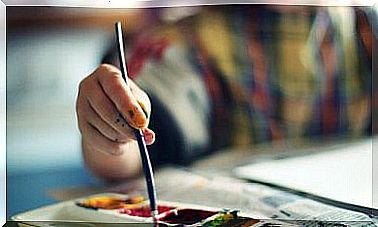The Value Of Teaching Children To Say “thank You”

Saying “thank you” is the most direct way to reciprocate a gesture, a care that another person had or will have with us. It is an attitude that recognizes how much we appreciate each other’s actions.
“Thank you” is used to reward someone not in economic matters, but spiritually. Whoever says that word always receives in response a kind gesture, a smile, a gentle movement to indicate: it’s okay, don’t worry, you deserve it, enjoy…
The person who receives the acknowledgment receives the award for having acted correctly and made someone feel good. Certainly, it is also deserving of a reciprocal affection that will serve to consolidate the bonds of friendship with that other being, or the possibility of starting a new friendship if the two people have just met.
Anyone who does not know how to say “thank you”, or who knows but considers that he does not need to, becomes a lonely being, with an impoverished soul, who is alien to the values of good manners.
Teach your child that any time is appropriate to say thank you

If you recognize a good friend in a classmate, whom you thank for being who you are.
The patience that your teacher has when teaching math, the affection that your grandmother shows, the presence of your sister who offers so much security… Tell your child that he should thank and reciprocate the affection that people offer him by saying this personally to each one. of these people.
There is no time to give thanks. While it’s true that you must show gratitude when you receive a good deed, gift, or gesture from someone, you must learn to give thanks at any time, and for any reason.
You don’t ask for “thank you”, if you demand, or seek with good deeds
One should not ask for thanks or act in hopes of receiving such spiritual retribution. Even though gratitude is one of those essential values of good manners, you cannot be kind or do a good deed expecting the other to say thanks.
The good must be done in a disinterested way.
It is necessary to thank even those who act against you

Friends, those people who help you, give you good advice, and are always with open arms ready to extend their hands and accompany you on this confusing path of life: sharing the sorrows and the joys, they are the people who most deserve your gratitude.
However, all people are worthy of receiving thanks, including those who take actions and say something against you.
If the environment around you was composed only of friends, you would not need to excel in spiritual and professional matters to be better every day.
You would live forever in your comfort zone and never know envy, failure, evil, anger, betrayal… a cluster of feelings that strengthen the spirit and reflect true human nature as it is.
Friends must be thanked for good things, enemies for evil. Both will empower you to move forward.
The value of teaching children to say “thank you”
Mom, teach your child to say thank you when a person presents a candy, opens the door, or gets up to sit on the bench.
If they’re a little older, your child should know that giving thanks will always make him a prettier child, whom everyone will admire and appreciate because of his good manners.
Teach your child that gratitude is an inalienable part of peace, pleasant living, and mutual respect. Also teach that a good way to return good attitudes is to say thank you and, along with that word, to give a sincere smile.
Teach this knowledge as we always recommend: setting an example. If you thank your child for the happiness he brings, for being part of your life and for all the affection he offers, later you will realize that you will reap the same rewards.
It doesn’t matter if at first he doesn’t understand what the word “thank you” means and just repeats it because he was taught to do so. It is better that, from an early age, he grows with this acquired knowledge, as well as many others: kindness, companionship, courtesy, honor, tolerance and respect.









